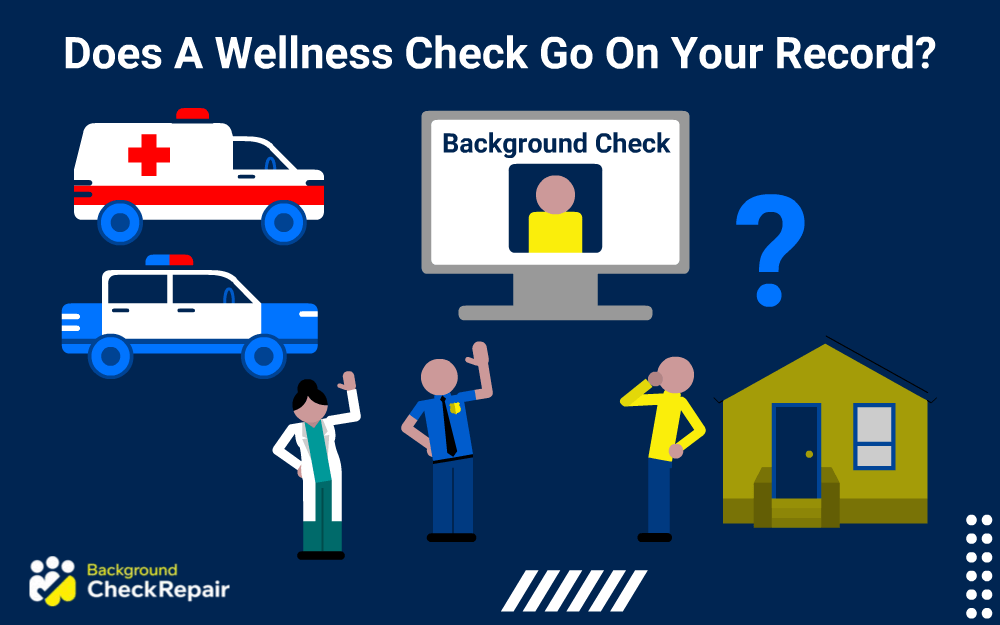Hunting Firearm Selection: Legal Requirements and Compliance Guide
Understand legal requirements for hunt firearms
Select the right firearm for hunt involve more than scarce personal preference or effectiveness in the field. Legal compliance play a crucial role in ensure both lawful hunting practices and public safety. Every hunter must navigate federal, state, and sometimes local regulations before purchase or use a firearm for hunt purposes.

Source: ccwclasses.net
Federal firearm regulations for hunters
At the federal level, several laws govern firearm ownership and use for hunt purposes. Understand these regulations is the first step in legal compliance.
Background check requirements
Under the gun control act, anyone purchase a firearm from a licensed dealer must undergo a background check through the national instant criminal background check system (nnice) This system verify that the buyer doesn’t fall into any prohibit categories, such as:
- Convicted felons
- Fugitives from justice
- Users of control substances
- Those adjudicate as mentally defective
- Illegal aliens
- Dishonorably discharge veterans
- Those who have renounce u.s. citizenship
- Subjects of restrain orders
- Persons convict of domestic violence
Age restrictions
Federal law establish minimum age requirements for firearm purchases:
- 21 years or older to purchase handguns from licensed dealers
- 18 years or older to purchase rifles and shotguns from licensed dealers
Notwithstanding, many states have additional age restrictions for possession and use, specially for hunt activities.
National firearms act (nNFL)restrictions
Certain firearms are heavy to regulate under the national firearms act, include:
- Short barrel rifles (barrels less than 16 inches )
- Short barrel shotguns (barrels less than 18 inches )
- Suppressors (silencers )
- Machine guns
- Destructive devices
Use these firearms for hunting require special permits, tax stamps, and extensive background checks. Many states prohibit hunting with NFL items exclusively, yet with proper federal documentation.
State specific hunting firearm regulations
State laws create the virtually significant variations in hunt firearm requirements. These regulations can differ dramatically from one state to another, make it essential to research specific requirements before hunt in any state.
Hunt license requirements
All states require hunters to obtain appropriate licenses before lawfully hunt. Many states besides mandate hunter education courses for first time license applicants. These courses typically cover:
- Firearm safety
- Hunt ethics
- Wildlife conservation
- Relevant laws and regulations
- Field skills and survival
Complete an approval hunter education course is much a prerequisite for obtain a hunting license, particularly for younger hunters.
Caliber and ammunition restrictions
States often regulate the types of firearms and ammunition that can be lawfully used for hunt specific game. These restrictions serve conservation purposes and ensure ethical harvesting practices.
Big game caliber requirements
For big game hunting (deer, elk, bear, etc. ) many states establish minimum caliber requirements to ensure humane harvesting. Common restrictions include:
- Minimum caliber size (frequently.22 caliber or larger for ccenter firerifles)
- Prohibitions against full metal jacket ammunition
- Requirements for expand bullets
- Minimum muzzle energy requirements
For example, many states require center fire rifles of.243 caliber or larger for deer hunting to ensure sufficient power for clean, ethical kills.
Shotgun regulations
Shotgun regulations typically include:
- Gauge restrictions (frequently 10, 12, 16, or 20 gauge exclusively )
- Shot size limitations (peculiarly for bird hunting )
- Plugs limit magazine capacity to 3 shells for migratory bird hunting (federal requirement )
- Restrictions on rifle slugs vs. Buckshot depend on the game and area
Muzzle loader specifications
States with dedicated muzzle loader seasons oftentimes have specific requirements:
- Minimum caliber requirements (oftentimes.40 caliber or larger for deer )
- Restrictions on ignition systems (percussion, flintlock, or inline )
- Prohibitions against certain propellants or multiple projectiles
Weapon type restrictions by season and area
Many states designate specific seasons for different weapon types:
- Archery seasons (compound bows, recurve bows, crossbow )
- Muzzle loader seasons
- Rifle seasons
- Shotgun only areas or seasons
These designations vary by region, regular within the same state. For example, dumbly populate areas might be restricted to shotguns omuzzle loadersrs for safety reasons, while remote areas permit rifle hunting.
Magazine capacity limits
Many states restrict magazine capacity for hunt firearms:
- Common limits include 5 or 6 rounds for center fire rifles
- Federal law limit shotguns to 3 shells for migratory bird hunting
- Some states require semi-automatic firearms to have magazines permanently modify to comply with capacity restrictions
Special hunting area regulations
Beyond state wide regulations, specific hunting areas may have additional firearm restrictions.
Public land restrictions
Different public land management agencies may impose their own firearm regulations:
- National parks typically prohibit hunt exclusively
- National forests mostly follow state hunting regulations
- Bureau of land management (bBLM)lands typically follow state regulations
- National wildlife refuges may have specific weapon restrictions
- State parks and wildlife management areas oftentimes have custom regulations
Urban and suburban hunting zones
Areas near population centers often have additional restrictions:
- Shotgun only zones
- Archery only areas
- Prohibitions against hunt with rifles
- Special permits or proficiency tests
Transportation and storage requirements
Legal compliance extend beyond the actual hunting activity to include transportation and storage of hunt firearms.
Vehicle transportation
Most states have specific requirements for transport firearms in vehicles:
- Unload firearms
- Cased or differently inaccessible
- Ammunition store individually
- Special considerations for cross state lines
Interstate transportation
The firearm owners protection act provide safe passage for lawful firearm owners travel between states where their firearms are legal, regular when pass through states with more restrictive laws. Notwithstanding, this protection has limitations:
- Firearms must be unloaded
- Both firearms and ammunition must be inaccessible from the passenger compartment
- The journey must include a beginning and end where possession is legal
Special considerations for non-resident hunters
Non-resident hunters face additional legal requirements when bring firearms across state lines for hunt purposes.
Non-resident hunting licenses
All states require non-residents to obtain appropriate hunting licenses, which typically:
- Cost more than resident licenses
- May require proof of hunter education
- May have different season dates or bag limits
Firearm registration requirements
Some states require temporary registration of firearms bring in by non-residents. Hawaii, California, New York, and several other states have especially stringent requirements for bring firearms into the state, tied temporarily for hunting.
Select a lawfully compliant hunting firearm
Give the complex web of regulations, hunters should follow a systematic approach when select a hunting firearm.
Research local regulations
Before purchase a hunting firearm:

Source: outinglovers.com
- Consult the state wildlife agency website
- Review the current hunting regulations guidebook
- Contact local conservation officers with specific questions
- Join hunt organizations familiar with local requirements
Consider multiple use cases
When select a hunting firearm, consider its legal compliance across various scenarios:
- Different game species you intend to hunt
- Various hunting areas and their specific restrictions
- Different hunting seasons (regular firearm, mmuzzle loader etc.)
- Interstate transportation if you plan to hunt in multiple states
Documentation and permits
Maintain proper documentation for your hunting firearm:
- Proof of ownership
- Receipts and serial numbers
- Hunt licenses and permits
- Hunter education certification
- Any special permits (e.g., for nNFLitems if legal in your jurisdiction )
Consequences of non-compliance
The penalties for violate hunt firearm regulations can be severe:
- Substantial fines (mmanythousands of dollars )
- Misdemeanor or felony charges
- Revocation of hunting privileges (oftentimes across multiple states through interstate compacts )
- Confiscation of firearms and equipment
- Potential imprisonment for serious violations
Stay current with change regulations
Hunt regulations change oftentimes. Responsible hunters should:
- Review current regulations before each hunting season
- Subscribe to updates from state wildlife agencies
- Join hunt organizations that monitor regulatory changes
- Attend refresher hunter education courses sporadically
Conclusion
Select a lawfully compliant firearm for hunting require understand multiple layers of regulations at federal, state, and local levels. The responsible hunter must research specific requirements for their hunting locations, game species, and firearm types.
By prioritize legal compliance alongside traditional considerations like effectiveness and suitability for the game, hunters contribute to the preservation of hunting traditions and public safety. Will remember that regulations will exist not exclusively for safety but too to will ensure ethical, sustainable hunting practices that will preserve wildlife resources for future generations.
Invariably consult current official sources for the near up-to-date information, as hunt regulations are subject to change. When in doubt, contact your state’s wildlife agency or a conservation officer for clarification before head into the field.
MORE FROM mumsearch.com













